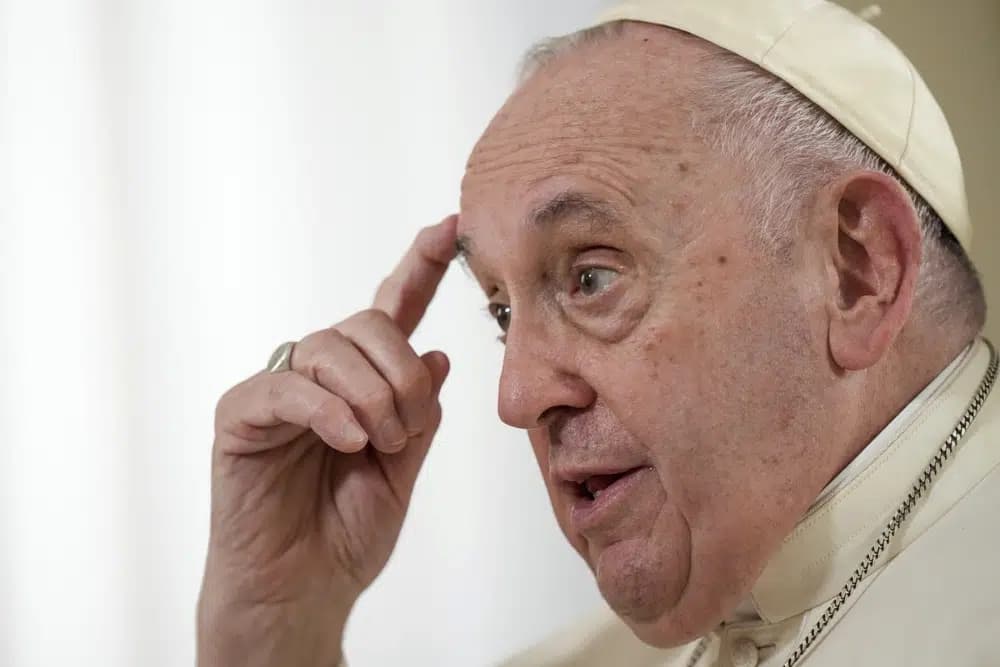ROME – When the Vatican recently announced changes to the rules for the Synod of Bishops which, for the first time, allow laity, including women, to be full members with voting rights, the move was widely hailed as a step towards Pope Francis’s famed vow of achieving a greater female presence “where important decisions are made.”
Widely hailed, that is, but not universally.
Competing with the positive narrative put forward by official Vatican media channels and the pope’s friends and allies has been another, more cynical reading. According to some detractors, the rules changes aren’t intended to expand the voices heard during a synod but actually to restrict them – that is, to stack the deck with lay activists who will parrot the pope’s progressive line, while diluting the impact of more conservative bishops.
This school of thought holds that Francis learned from his tumultuous synods on the family in 2014 and 2015 that there’s a strong conservative streak in the global episcopacy, from the U.S. and Poland to Africa and beyond, and that if he were to submit some of his chosen reforms to a free and fair, secret ballot vote within the episcopal college, it’s not automatic what the result might be.
By extending the franchise within the synod to laity, most of whom will be either directly or indirectly chosen by the pope and his aides, the math becomes more friendly to the pope’s agenda – or, at least, so goes the cynical view of things.
To be fair, however, Pope Francis has not yet announced his slew of appointments to the forthcoming Synod of Bishops on Synodality, the first session of which is set for this October with the finale for October 2024. French Sister Nathalie Becquart, undersecretary of the Synod of Bishops, recently said the full list of participants will be released later this month.
In the meantime, however, there were other personnel moves last week that might invite a bit of caution in assessing the deck-stacking hypothesis.
On April 25, the Vatican announced a series of appointments of new members to the Vatican’s Dicastery for Evangelization, its principal department for overseeing the church in what was traditionally described as “mission territory,” generally meaning the developing world.
Fourteen of those nominees were bishops, and it’s worth observing that they included a mix of reliable Francis allies, such as Cardinals Kevin Farrell of the Vatican and Matteo Zuppi of Bologna, but also prelates often seen as somewhat more conservative in outlook, such as Cardinals Cardinal Odilo Pedro Scherer of São Paulo and Timothy Dolan of New York, as well as Josip Bozanić, now the emeritus Archbishop of Zagreb.
Francis also appointed four lay persons as members of the Dicastery for Evangelization, and here’s where things get even more interesting.
One of those nominees was Paolo Ruffi, an Italian layman who’s headed the Vatican’s Dicastery for Communications since 2018. The other three, however, were figures associated with “new movements” in the Catholic Church:
- Moysés Louro de Azevedo Filho, founder of the Shalom Catholic Community in Brazil, which has become one of the largest Catholic charismatic groups in the world.
- María Ascensión Romero Antón, a Spanish lay woman who’s part of the three-person leadership team for the Neocatechumenal Way.
- Marta Cartabia, an Italian lay woman who’s the former president of Italy’s Constitutional Court and also former Minister of Justice, who’s close to the Communion and Liberation movement founded by the late Italian Father Luigi Giussani.
Granted, tapping representatives of the movements to the Dicastery for Evangelization is a move any pope would be likely to make, given that in the period after the Second Vatican Council in the mid-1960s, the movements have enjoyed great missionary success, especially across the developing world.
However, from the point of view of the deck-stacking hypothesis, none of these three figures would be considered “progressives” by the standards of internal Catholic debate.
Cartabia, for instance, is an opponent of gay marriage, arguing that the Italian constitution protects the traditional family and differentiates it from other forms of relationship – a position which has drawn fire from many of the same gay rights groups in Italy which often praise Pope Francis’s perceived openness and outreach.
While neither Azevedo nor Romero have sought the spotlight, it’s certainly fair to say that the groups they represent do not have reputations as being part of the progressive avant-garde of global Catholicism.
To expand the point, it’s also interesting that among the consultors named by Pope Francis to the Dicastery for Evangelization were the prelate of Opus Dei, Spanish Monsignor Fernando Ocáriz Braña; Curtis A. Martin, founder of the Fellowship of Catholic University Students in the U.S.; and Petroc Willey, British theologian now teaching at the Franciscan University of Steubenville and onetime host of a catechetical series on EWTN.
Once again, this is hardly an all-star team of liberal Catholics.
Of course we’re talking apples and oranges here, since the Synod of Bishops is a very different animal from the Dicastery for Evangelization.
Still, under the heading of keeping the record straight, it’s nevertheless striking that just 24 hours before rules changes were unveiled which sparked accusations in some circles of stifling conservative voices, Pope Francis tapped a number of individuals who typically would be perceived as “conservatives” to a Vatican department.
Construe that fact as you will, naturally, but a fact it remains nonetheless.














